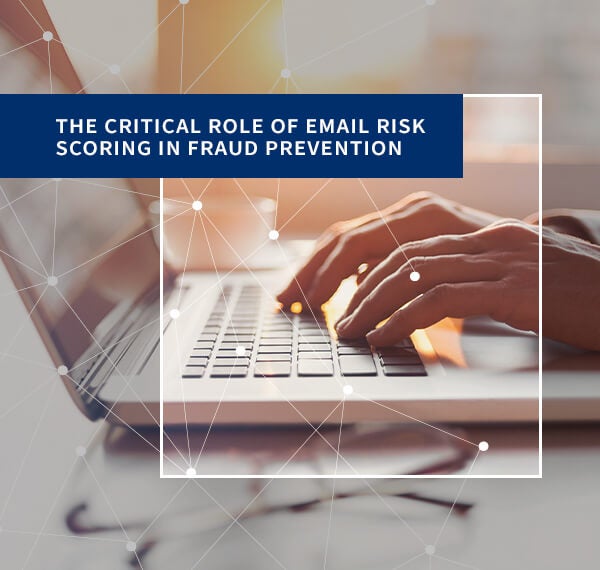Email Risk Scoring - the Key to Optimal Fraud Prevention
Use Email Addresses to Detect and Deter Fraud

Preventing fraud is a balancing act. You want to prevent fraud with appropriate risk friction to ensure a positive customer experience.
Email addresses can play a critical role in effective fraud detection and prevention. Email addresses are routinely used for online activities―from opening bank accounts and completing credit card applications to starting social media accounts and making any types of purchases. Providing an email address has become a commonly accepted part of the purchase process.
Personal vs. Business Emails
Personal emails, in particular, are the logical front-end fraud prevention layer. The vast majority of people use a personal email account for personal activities like online shopping, reserving business email addresses for their work-related activities.
Most people rarely change those personal email addresses, unlike their business emails that change anytime they get a new job or their home addresses that change when they move. The long-term use of those personal emails helps make them good identifiers.
Patterns of Behavior
Email addresses provide an enormous amount of behavior and history data perfect for fraud detection and prevention. Whenever someone uses an email address, they leave a trace. Over time, those traces reveal behavioral patterns, which when examined, assess transaction risk.
Many fraud prevention tools only analyze standard transaction data such as name or address. These are easy for fraudsters to trick, reverse-engineer, evolve and innovate around. But, fraudsters use email addresses in ways that fall into patterns that are identifiable, based on velocity and structure.
Email Risk Scoring
LexisNexis® Emailage uses email addresses to validate identities and accurately assess risk. Our solution provides a risk score that goes beyond static data and illuminates the person behind a transaction by using IP address, email, and additional static and dynamic information.
In most cases, an email address alone is not considered personally identifying information (PII).
Simplify Fraud Prevention
Your business already captures email address information for transactions and engagement. Now you can use it to also detect and deter fraud, all while delivering seamless experiences to your customers.
Want to know more? Download our white paper.
